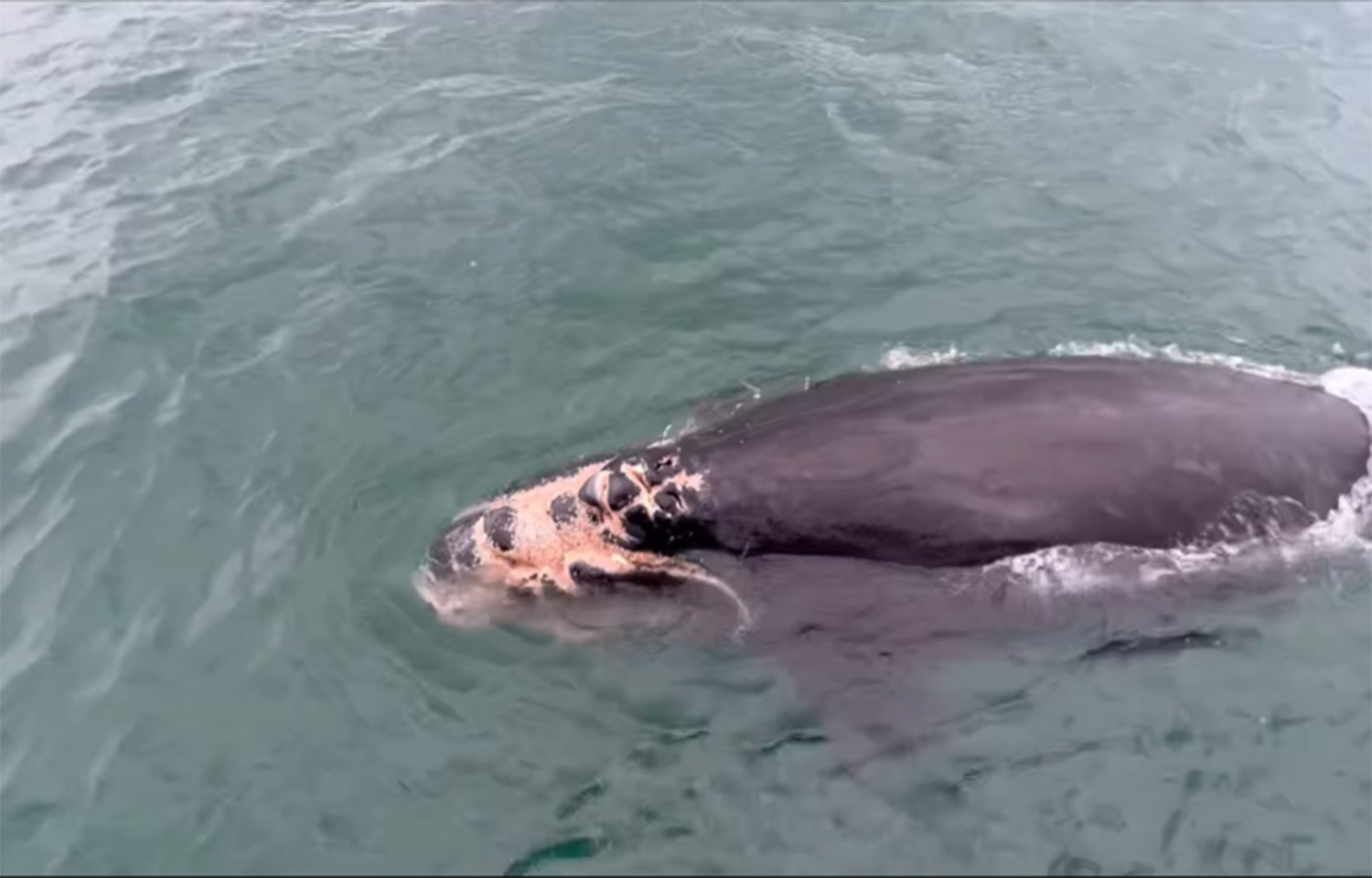A North Atlantic right whale calf has suffered a potentially fatal head injury from an apparent vessel strike off the coast of the U.S. state of South Carolina.
The NOAA Fisheries Southeast Region office was notified 6 January of the injured calf after it was sighted by both anglers and the crew on a charter fishing vessel near Edisto, South Carolina.
“Videos shared by the public on social media show several propeller wounds on the head, mouth, and left lip of the calf consistent with a vessel strike,” NOAA said. “These injuries may impact this calf’s ability to nurse successfully.”
An assessment of the images by NOAA Fisheries biologists indicated the wounds were likely fatal.
“The whale is likely to die as a result,” NOAA said. “We will continue to work with authorized responders to monitor this calf and further document its injuries.”
Georgia Department of Natural Resources biologists issued a similar assessment.
“The calf’s injuries appear severe, but they are not fresh,” a statement from the agency said. “Images taken by the anglers show the wounds covered in cyamids. The presence of the small crustaceans commonly found on whales indicate the wound is at least a few days old.”
The calf – one of just nine critically endangered North Atlantic right whales born in 2023 – was initially spotted 28 November off Georgetown, South Carolina. The species’ global population is estimated at fewer than 350 animals.
The calf and its mother were last seen prior to the injury on 9 December off Amelia Island, Florida, according to NOAA. Southeast U.S. waters serve as the winter calving grounds for North Atlantic right whales and are the destination for pregnant females that migrate over 1,000 miles from New England and Canada from November through January.
Ship strikes are a danger to right whales, which swim at or near the surface and are hard for mariners to see because of their dark coloration and lack of fins showing above the water.
That danger may be elevating as ship traffic increases to Southeast ports like Charleston, South Carolina; Savannah, Georgia; and Jacksonville, Florida. Small vessels pose a danger, too; in 2021, a charter fishing boat in Florida killed a calf and injured its mother, the latter of which was never sighted again.
The recent South Carolina incident is the 35th serious injury in the agency’s ongoing monitoring of "Unusual Mortality Events" impacting North Atlantic right whales. Since 2017, NOAA has documented 122 right whale injuries, including 36 dead, 35 seriously injured, and 51 otherwise sick or injured whales.
NOAA requires most vessels over 65 feet long to transit at 10 knots or less through right whale seasonal management areas that the agency delineates along the Southeast and Mid-Atlantic coasts and harbor approaches. However, audits conducted by both NOAA itself and environmental groups of ship speeds using automatic identification system (AIS) data have shown cargo vessels often exceeding the 10-knot limit.
NOAA has proposed extending the 10-knot speed rule to vessels under 65 feet in seasonal management areas, which has faced bitter opposition from recreational boatbuilders, charter and party fishing captains, small passenger vessel operators, and others.
Environmental advocates, meanwhile, took the recent South Carolina report as a new reason to slam NOAA for not moving the speed rule extension forward.
“At a time when every single calf is vital to the survival of the critically endangered right whale, once again one has been struck and mortally injured by a vessel,” Defenders of Wildlife Senior Attorney Jane Davenport said. “A right whale calf currently has a one in 14 chance of dying before its first birthday from a vessel strike, yet the Biden administration is inexplicably dragging its feet in finalizing a new regulation to protect vulnerable mother-calf pairs from being run over by boats – and suffering protracted, agonizing deaths.”
Reporting by Kirk Moore
Photo courtesy of Forever Hooked Charters of South Carolina photo/via NOAA







